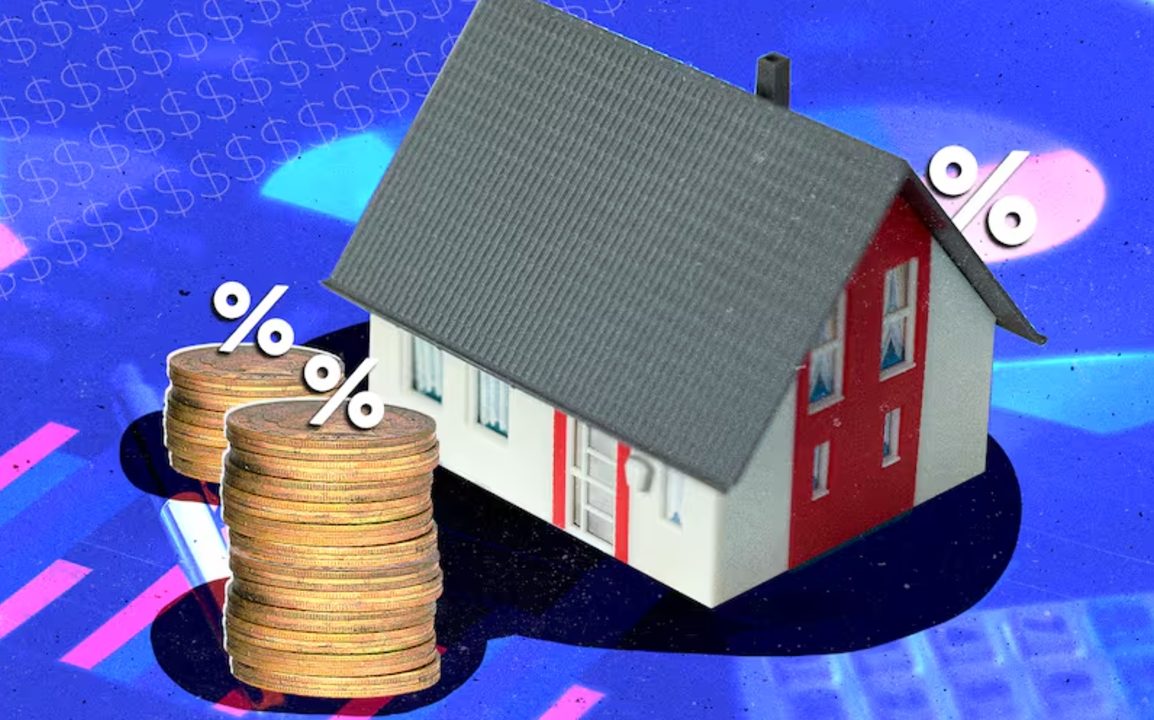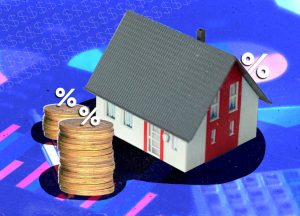
첫집 구매자의 담보대출, 10년 만에 두 배 이상 증가…상환 부담 커져
Mortgage Debt for First-Time Homebuyers Doubles in 10 Years, Increasing Repayment Burden
Over the past decade, the mortgage debt burden on first-time homebuyers in New Zealand has surged, with the amount of loans more than doubling and repayment pressures mounting significantly. According to data from the Reserve Bank of New Zealand (RBNZ), the average mortgage loan for first-time buyers, which was around NZD 300,000 in 2014, has now risen to over NZD 550,000 in 2023. Along with this increase in loan amounts, the repayment obligations have also seen a marked rise.
As of 2023, with an interest rate of 5.99%, the bi-weekly repayment on a 30-year loan would be approximately NZD 1,520—more than double the NZD 829 bi-weekly payment seen in 2014. Experts warn that this trend suggests first-time homebuyers will face long-term financial strain due to higher repayment amounts. Although household incomes have grown from NZD 90,000 to NZD 130,000 during the same period, mortgage repayments continue to represent a significant financial burden for many households.
A report from the Finance and Mortgage Advisors Association reveals that nearly 59% of New Zealand households are spending over 30% of their income on mortgage repayments, with about 25% of households dedicating more than half of their income to servicing their mortgage. As a result, the number of homeowners facing financial distress, often referred to as being “mortgage prisoners,” is on the rise. In fact, 27% of homeowners are reported to be in serious financial trouble due to issues like loan restructuring or other financial challenges.
One of the key indicators of the housing market’s growing strain is the sharp rise in overdue mortgage payments. According to data from Centrix, as of September 2023, the number of overdue mortgage loans had reached 21,200, marking a 13% increase compared to the previous year.
Experts point to the recent rise in housing prices as a contributing factor to the growing financial burden on households. Gareth Kiernan, chief forecaster at Infometrics, noted that the disparity between housing prices and household incomes is now at a level that would have been considered unsustainable just 25 years ago. He warned that if this trend continues, the ongoing rise in housing prices could lead to even greater difficulties. He also expressed concern that if excessive price growth continues, the market could face more severe long-term consequences.
Meanwhile, there is growing pressure for the government to take more decisive action to address the imbalances in the housing market. Economists argue that there needs to be a medium-term strategy to increase housing supply and ensure housing prices remain reasonable relative to household incomes. Some have suggested that while the current standard—spending no more than 30% of income on mortgage repayments—may be an unrealistic goal for today’s homebuyers, it could serve as a suitable long-term benchmark.
As uncertainty continues to cloud the housing market, many experts predict that a sharp rise in housing prices is unlikely in the coming years. However, despite the challenges, many potential buyers are still exploring ways to enter the market. Banks are offering low-deposit loans and other forms of support, but with high loan repayments and slower income growth, many buyers are expected to continue facing significant financial pressures.

첫집 구매자의 담보대출, 10년 만에 두 배 이상 증가…상환 부담 커져
최근 10년 사이 첫 주택 구매자들의 주택담보대출 금액이 급증하며, 대출 상환 부담도 크게 늘어난 것으로 나타났다. 뉴질랜드 중앙은행(RBNZ)의 자료에 따르면, 2014년 평균 약 30만 달러였던 첫 주택 구매자들의 신규 대출액이 2023년 현재 55만 달러를 넘어섰다. 이와 함께 대출 상환액 역시 눈에 띄게 증가했다.
2023년 기준, 대출금리가 5.99%일 경우, 30년 동안 격주로 상환해야 하는 금액은 약 1,520달러로, 2014년 격주 상환액인 829달러보다 두 배 이상 많다. 이는 첫 주택 구매자들이 앞으로 장기적으로 더 높은 금액을 상환해야 할 부담을 안게 될 가능성이 크다는 분석이다. 같은 기간 동안 가계 소득은 9만 달러에서 13만 달러로 증가했지만, 대출 상환액의 비중은 여전히 가계의 주요 부담으로 작용하고 있다.
주택담보대출 자문협회(Finance and Mortgage Advisors Association)의 보고서에 따르면, 뉴질랜드 가구의 약 59%가 소득의 30% 이상을 대출 상환에 지출하고 있으며, 이 중 약 25%는 소득의 절반 이상을 대출 상환에 쓰고 있는 것으로 나타났다. 이에 따라 주택담보대출 상환에 어려움을 겪는 ‘모기지 포로’ 상태에 놓인 집주인도 늘고 있다. 실제로 27%의 주택 소유자는 대출 재조정이나 재정적인 문제로 심각한 상황에 직면했다고 전했다.
주택 시장의 어려운 현실을 증명하는 지표 중 하나는 연체 대출 건수의 급증이다. Centrix의 데이터에 따르면, 2023년 9월 기준으로 연체된 주택담보대출 건수는 21,200건으로, 이는 전년 대비 13% 증가한 수치다.
전문가들은 최근의 주택 가격 상승이 가계의 재정적 부담을 더 키운다고 지적한다. Infometrics의 수석 예측가 가레스 키어넌은 주택 가격과 소득의 차이가 25년 전만 해도 터무니없는 수준으로 간주됐을 것이라며, 현재 상황이 지속되면 주택 가격 상승이 더 어려운 상황을 초래할 수 있다고 경고했다. 그는 주택 시장이 계속해서 과도한 가격 상승을 보일 경우, 향후 더 큰 부작용이 발생할 수 있다고 우려를 표명했다.
한편, 주택 시장의 불균형을 해소하기 위한 정부의 정책적 노력이 시급하다는 목소리도 높다. 경제학자들은 주택 공급을 늘리고, 소득 대비 합리적인 주택 가격을 유지하기 위한 중기적인 접근이 필요하다고 주장하고 있다. 특히, ‘주택 적정성 기준’으로 여겨지는 소득의 30%를 대출 상환에 사용하는 기준이 현대의 주택 구매자들에게는 달성하기 어려운 목표가 될 수 있지만, 이는 장기적으로는 적합한 기준이 될 수 있다는 의견도 제기됐다.
주택 시장에 대한 불확실성이 커지고 있는 가운데, 많은 전문가들은 향후 몇 년간 주택 가격의 급등은 어려울 것이라고 예측하면서도, 현 상황에서 주택 구매를 지속하려는 사람들은 여전히 방법을 찾고 있다고 전했다. 은행들이 저예치 대출을 제공하는 등의 지원이 있지만, 높은 대출금 상환액과 소득 증가의 둔화가 결합되면서 많은 구매자들에게 심각한 재정적 부담이 지속될 것으로 보인다.
